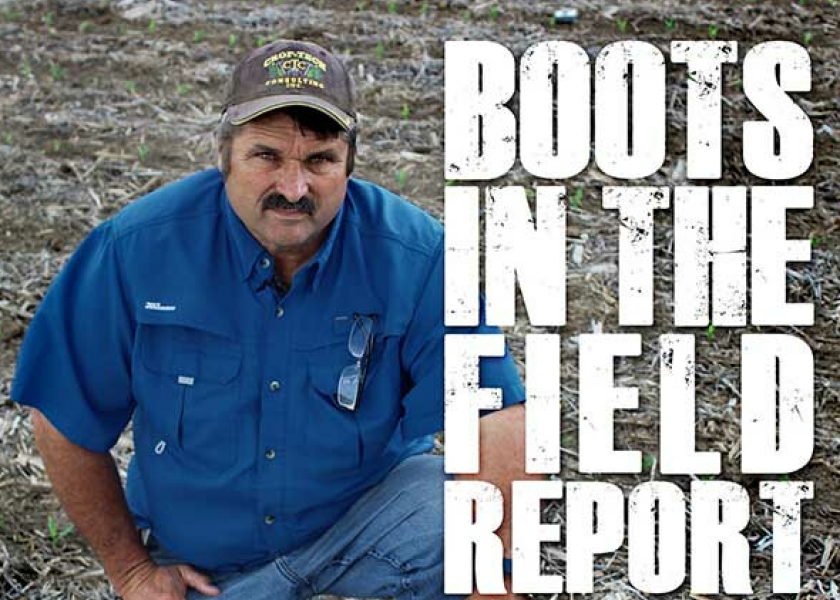Ferrie Answers ‘Can a Soil Test Help Determine the Need for Fungicides?’

Ken Ferrie, Farm Journal Field Agronomist, hosted a series of online agronomic sessions for farmers called Beyond The Basics this past week. (Learn more at www.croptechinc.com/beyondthebasics/)
During the event, one farmer asked: “Can a soil test help determine the need for a fungicide application, and does healthy soil correlate with less need for fungicide?”
Ferrie responded in detail during his Boots in the Field podcast: “The answer to these questions is yes, maybe, sorta,” he says.
“We all know about the disease triangle: you must have the disease, a host and the right conditions to trigger disease outbreak. Soil health falls under the area of conditions, and soil test can help identify conditions.
Soil tests do not detect the presence of disease or tell you that disease is present in the field. Fields that have good soil health have as much disease present as any other unhealthy field. Healthy soils do not prevent disease from moving into a field.
What we do know is healthy plants handle stress better than unhealthy plants. This was evident in our fertility plots this year as we dealt with a toxic mixture of multiple diseases on top of heavy tar spot pressure. Some of our N plots made an additional 30 pounds of N look like a fungicide application when it came to keeping corn greener longer—packing more starch in before disease shut down the plant.
Calcium and potassium play a big part in disease defense. While we don't see many calcium deficiencies in Illinois, we do see potash deficiencies. A soil test can give us a good indication of which farms are going to come under more stress due to a lack of nutrient uptake.
Low potash-testing fields will have more trouble than those fields where the potash is adequate. Fields that are acid and need limestone will be more susceptible to disease pressure. Fields that run out of nitrogen during grain fill are more susceptible to disease pressure. In our plots as we pulled N rates back some hybrids died a month early, knocking 30 bushels to 50 bushels off of the yield outcome.
As we focus on things like soil pH and potassium levels, trying to keep them at optimum levels, many years there's not a direct correlation between these values and yield – until you get to a year like 2021 where heavy disease pressure takes down the weak corn first.
Fields with low soil tests tend to get in trouble first, with premature death and down corn. Low potassium values in fields that receive high amounts of N – either commercial fertilizer or manure – tend to fall apart first. The better your overall fertility, the more disease pressure you can handle. The same goes for soil health – the healthier your soil the better your crop can handle disease stress.
With tar spot, as well as many other diseases, it's a matter of trying to outrun the disease. Get the plant far enough along that you can get more grain fill before it dies.
With that said, we have good fertility. But if the conditions are right and the crop is susceptible to the diseases present, you're going to have a disease outbreak. Fungicides and good fertility will lessen the impact of the outbreak, but they will not eliminate it.
Therefore, we want to be careful pulling back too far on our fall fertility, especially in those fields that aren't at the optimum levels to begin with.
Several growers have reported that while a lot of their corn went down due to disease, the newer farms that we don't have up to speed yet on fertility and pH have taken the hardest hits in yield. Balanced fertility is just one of the tools that we use in the toolbox to handle disease along with hybrid and variety selection, residue management, fungicides and of course scouting.
Hear the complete Boots in the Field podcast below, and check out these additional articles:
Farming In The Sustainable Triangle: Human, Natural and Physical Environments
Unraveling the Genetic Mysteries of Maize
Unspoken Truths About Pests: Down The Vole Hole
Go Vertical: Manage the Subsurface Environment for Maximum Yield







